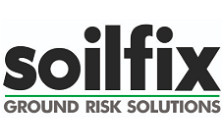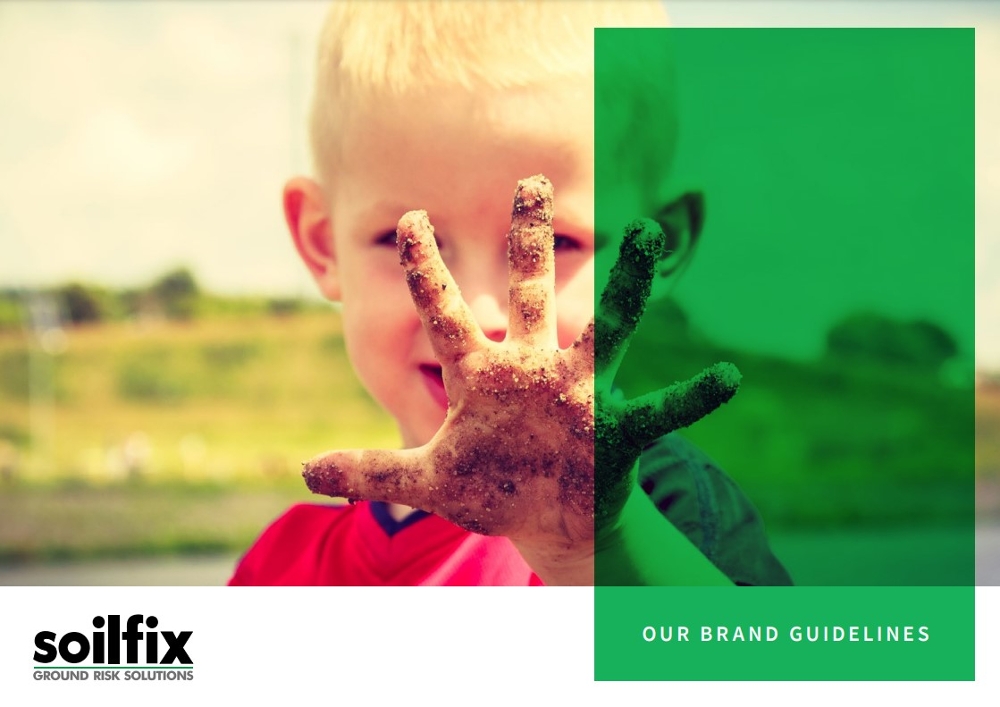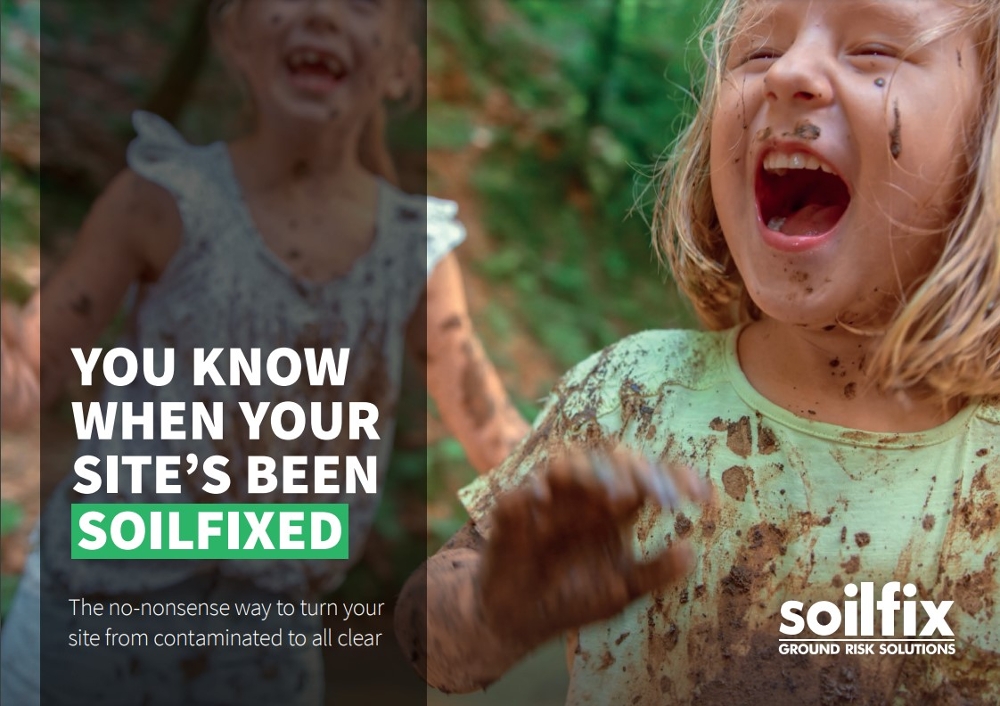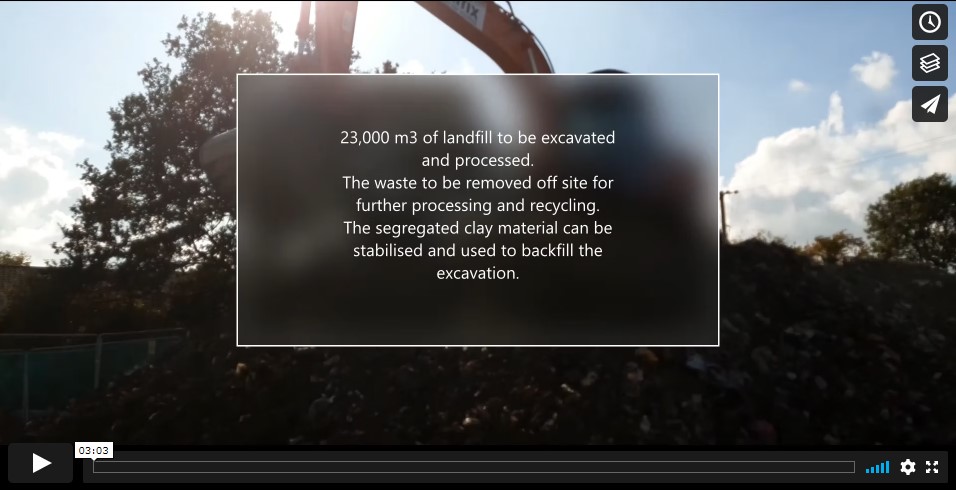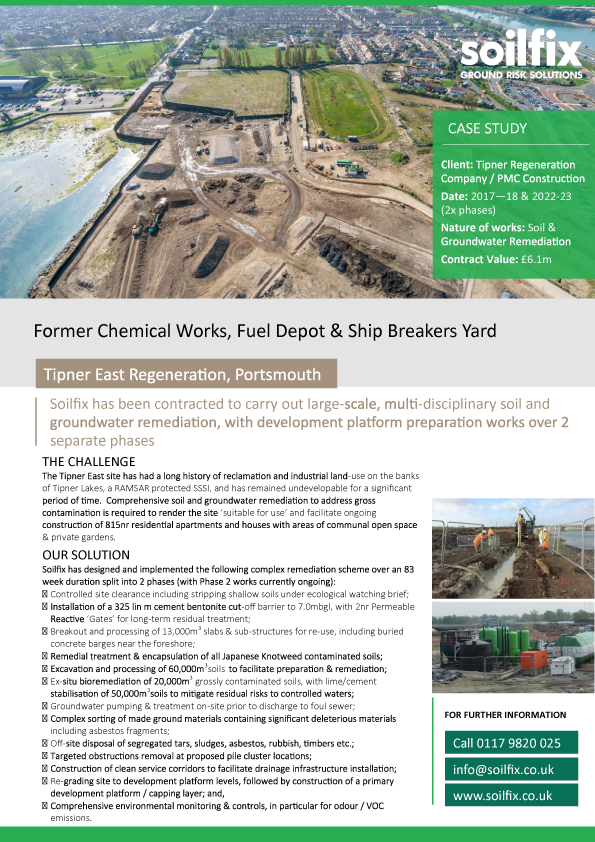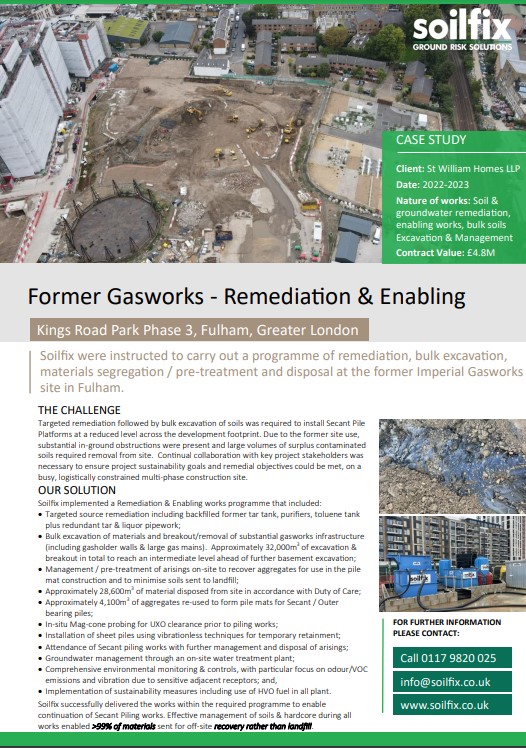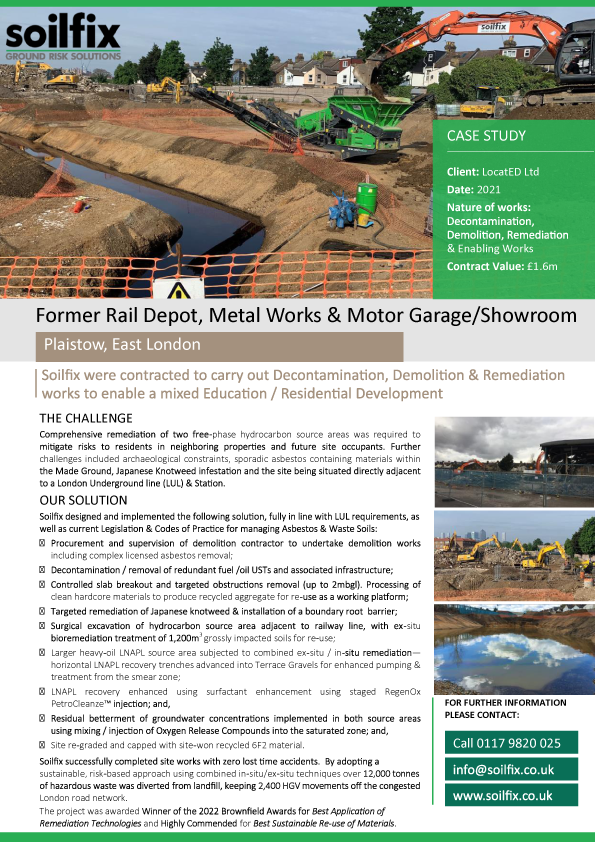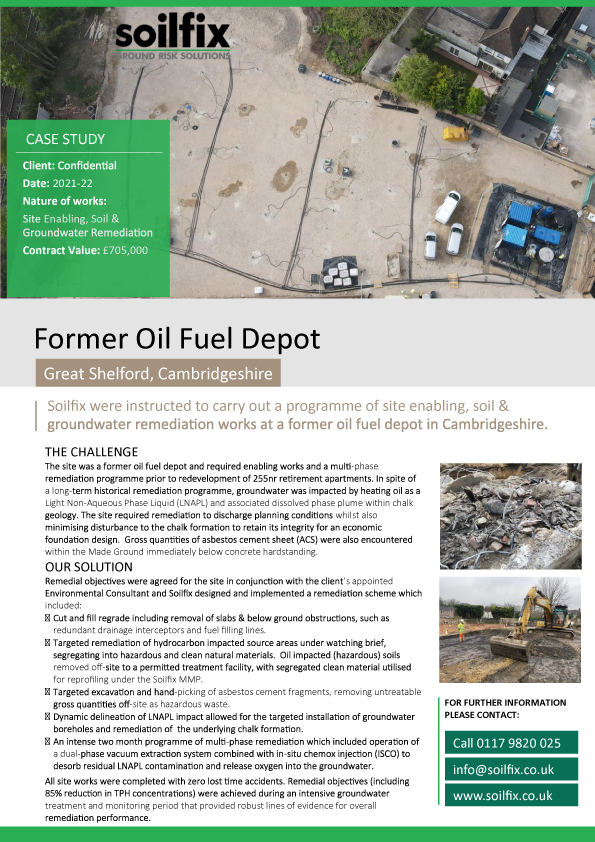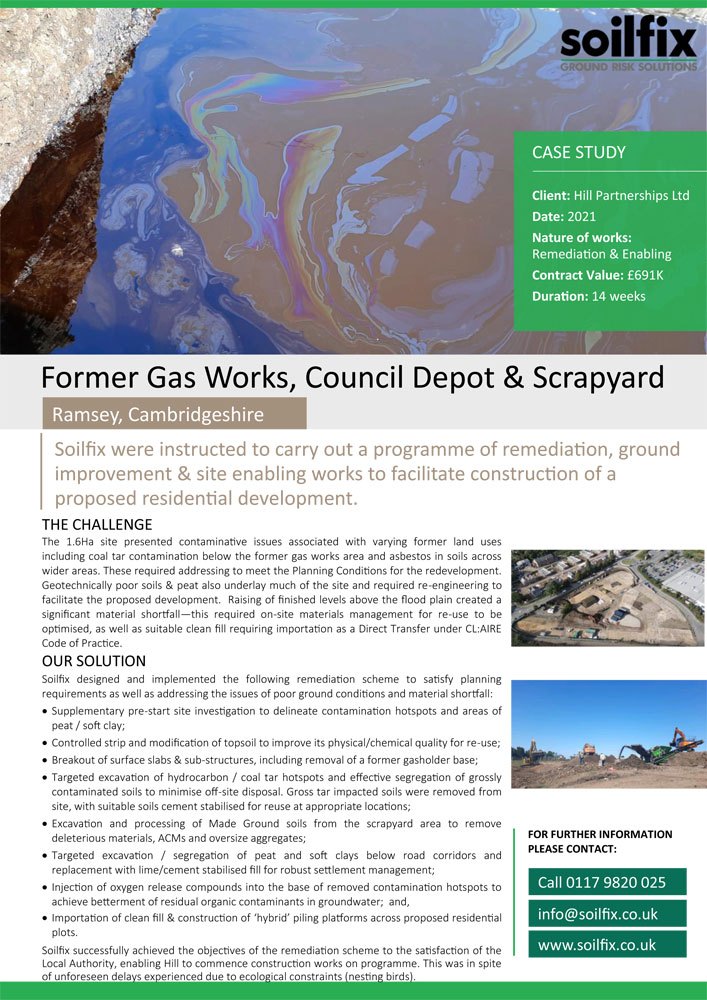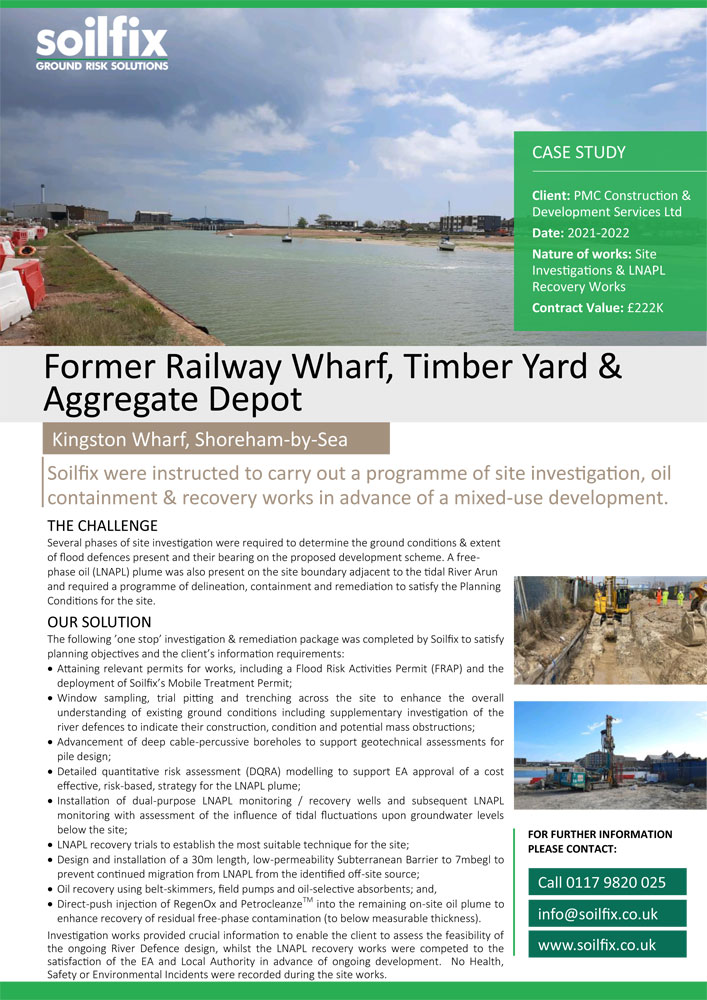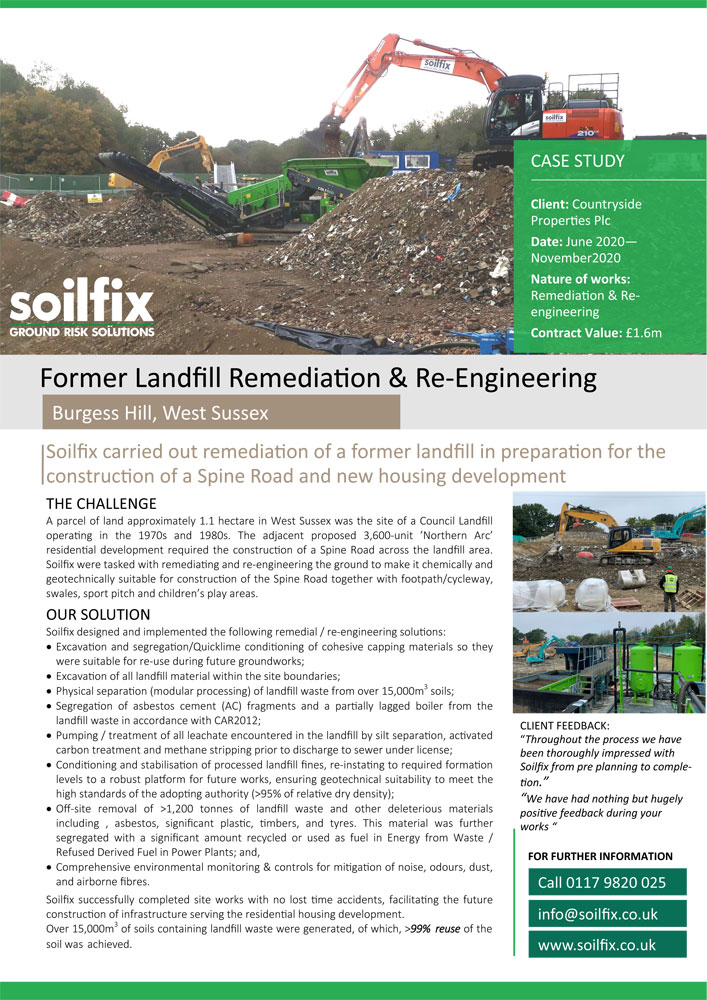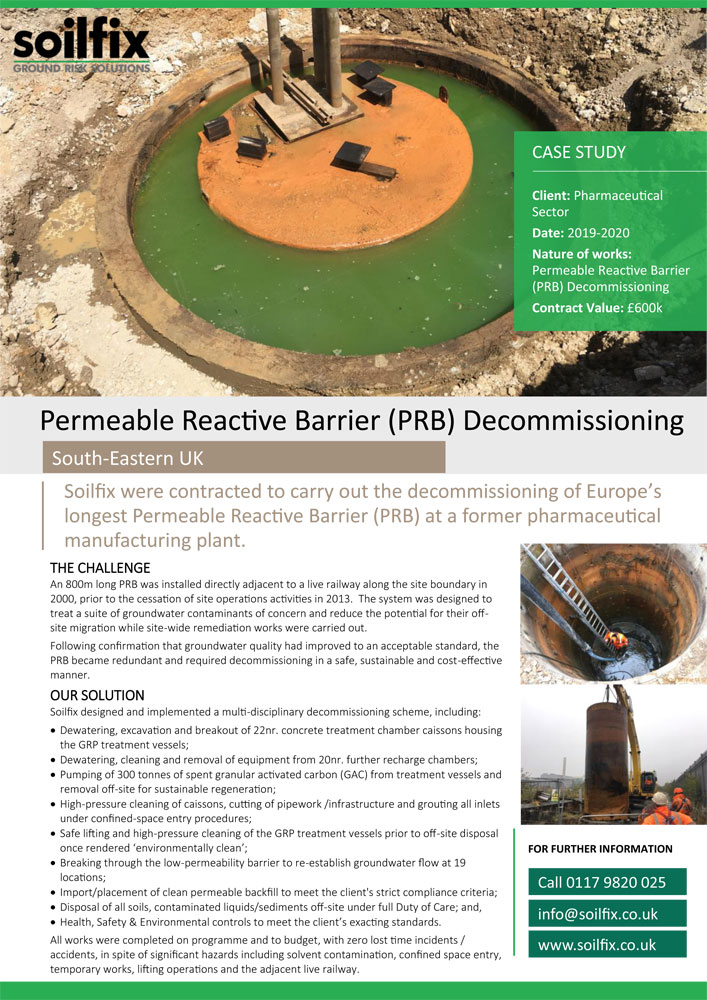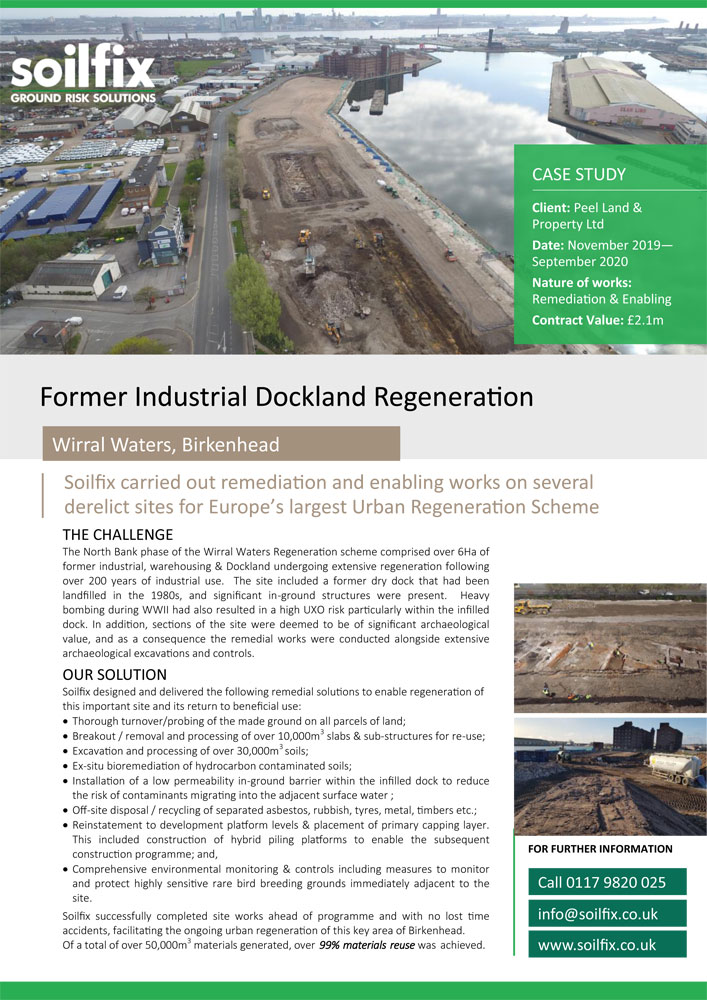Soilfix is an award-winning remediation solutions provider to the development, industrial, commercial and public sectors. Our mission is to understand and manage risk in the ground.
Since establishing the business in 2004, Soilfix has developed an outstanding track record for delivering technically robust, sustainable and innovative remedial solutions to unlock brownfield sites on a wide variety of industrial settings. Soilfix endorses a ‘Brownfield First’ approach that can speed up the development process by removing barriers to construction, whilst also protecting our environment and improving people’s mental and physical well-being.
Soilfix provides its remediation and ground risk management services throughout the UK.
Service areas: Remediation, demolition, enabling works, Soil & Groundwater Treatment, Waste Treatment, Materials Management
Contact information
George Evans, Managing Director
T: +44 (0)1179 820025 M: +44 (0)7717 817616
Interviews with Steve Jackson and George Evans
Soilfix: overcoming the post Covid challenges
Director of Soilfix, Steve Jackson, talks to Environment Analyst's Ian Grant about the challenges the company has faced post-Covid, ranging from cost inflation to planning delays.
Soilfix continues growth despite brownfield sector headwinds
Environment Analyst's William Hatchett spoke with George Evans, Managing Director at Soilfix Limited, to discuss the company’s fortunes post COVID, its ambitions in the brownfield sector, and future ownership.
Watch on-demand
|
|
Impacts of Climate Change on Brownfield Regeneration – Risks and Opportunities27 September at 13:00-14:00 BST, Panel discussion |
An increasing challenge for successfully regenerating Brownfield Land in the UK is shifting weather patterns associated with Climate Change.
The past five years have seen an increasing trend of hotter, drier summers and milder wetter winters, interspersed with periods of abnormal (often wetter) weather. The increased frequency and intensity of wet weather creates significant challenges for managing earthworks on brownfield sites including damage to soil structure, contaminated (and uncontaminated) silt run-off and increased fluctuations in groundwater levels.
Post remediation, brownfield developments are also placing significant additional pressure on our fragile sewage and river systems due to the practice of diverting rainfall away from groundwater infiltration systems (e.g. soakaways) and into the sewage and river systems.
These changes have wide ranging implications for developers, consultants and contractors alike – from the risk assessment and design stages through to site implementation (to programme / specification) and the potential need for ‘future-proofing’ remediation & earthworks projects in tandem with development levels and drainage for flood protection.
Whilst there are clear risks, are there also opportunities for the brownfield regeneration industry to help deliver a more sustainable, circular economy – this topic will be explored with our expert panel.
|
|
Stabilisation and Solidification of Soils – Practical Implementation to Manage Geotechnical and/or Contamination Risks16 August at 13:00 BST, Webinar |
Stabilisation and Solidification has become widely applied across the UK and is no longer considered to be an emerging remediation or soil improvement technique, having been applied to a wide variety of contaminants and environmental settings. However to ensure a successful project outcome, contractors and consultants alike need to carefully consider the most appropriate technique (or combination of techniques) to adopt, and carry out site specific design / treatability studies before implementing the S/S project at the full scale.
In this webinar Soilfix provided a variety of project examples to demonstrate how this technique can be successfully applied to solve a variety of contamination and geotechnical challenges on sites.
|
|
Regulatory Underfunding and the Drive for Net Zero10:00 BST on 27 September, Online panel discussion |
Funding to the regulatory system that supports contaminated land assessment and remediation has been reducing over recent years. This has led to decreased involvement of both dedicated local contaminated land officers and the Environment Agency in many brownfield and contaminated land development projects.
Efforts have been made within the sector to supplement this reducing involvement through self-governance, e.g. DoWCoP. However, this has been hampered by uncertainty and regulatory concerns about applying this guidance, the permitting regime, and possible mis-use by certain companies.
This Brownfield & Regeneration Network panel discussion, in partnership with Soilfix, explored these issues, and the extent to which an underfunded, under-resourced regulatory system is presenting a barrier to brownfield development through significant delays, increased costs and additional carbon outputs on remediation projects and endeavour to find a possible way forward.
Chair:
- George Evans, Managing Director, Soilfix Ltd
Panellists:
- Steve Edgar, Managing Director, VertaseFLI
- Nicholas Invernizzi, Head of Remediation, Berkeley Group
- Richard Moakes, Managing Consultant, Ramboll
- Graham Winter, Senior Advisor (Waste Strategy), Environment & Business, Environment Agency
|
|
Use of a ‘Carbon Calculator’ Tool to Support Sustainable Remediation Design – A Contractor’s Approach13:00 BST on 6 July, Online webinar |
Soilfix has been calculating its baseline Carbon Footprint and developing a Carbon Reduction Plan as part of its journey towards achieving ‘Net Zero’.
A bespoke ‘Carbon Calculator’ tool has also been developed to help Soilfix determine its potential vs actual Greenhouse Gas (GHG) emissions from particular remediation projects.
By presenting some case study examples, this Brownfield & Regeneration Network webinar outlined how Soilfix are utilising this tool to help inform clients of the remediation option(s) with the lowest potential GHG emissions and the cost vs benefit of adopting alternative approaches, materials & ‘green fuels’.
Speaker: Steve Jackson, Director, Soilfix Ltd
Steve has over 26 years experience in the successful design and implementation of contaminated land remediation across a broad spectrum of historical landuses, adopting a variety of conventional and more innovative techniques for soil & groundwater. He has been actively engaged as a Steering Committee member and consultee for various industry publications by CIRIA, JIWG & CL:AIRE as well as an active member of RemSoc.
Learn more about Soilfix
Watch the video: Landfill Processing
Download the case studies
|
Former Chemical Works, Fuel Depot & Ship Breakers Yard |
Former Gasworks - Remediation & Enabling |
Former Rail Depot, Metal Works & Motor Garage/Showroom |
||
|
Former Oil Fuel Depot |
Former Gasworks Council Depot and Scrapyard |
Former Railway Wharf, Timber Yard, Aggregate Depot |
||
|
Former Landfill Remediation and Re-Engineering |
Permeable Reactive Barrier (PRB) Decommissioning |
Former Industrial Dockland Regeneration |

